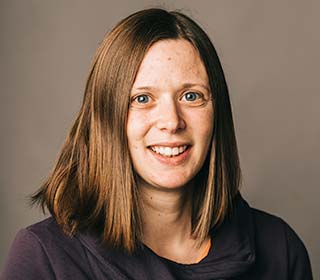BSc (Hons) Sports Therapy
Train as a professional Sports Therapist to prevent and treat injuries and gain a minimum of 400 hours clinical experience in our on-site clinics. Support many people, from professional athletes to anyone who wants to maintain their health and fitness. This course has high student satisfaction with final year students in the National Student Survey 2024 rating it 100% for Academic Support.

Entry requirements
Three A-levels at grades BBC or above
Or BTEC triple grades DMM or above
Or Access 30-42 D/M with minimum 18D
Or T level M
And GCSE English Language at grade 4 or grade C or above
Applicants with other qualifications and/or experience will be considered on an individual basis
We will accept 2 AS levels in lieu of one A level but must be accompanied by 2 A Levels or BTECs General Studies is excluded.
UCAS points 112
UCAS code C631
UCAS institution code P63
Duration Three years full-time and part-time options available
Any questions?
Contact Tara Godber, our Applicant Support Coordinator, if you have any questions. Email applicantsupport@marjon.ac.uk and Tara will get back to you.
Course Summary
The sports therapy industry is growing at a rapid pace and demand for skilled, expert professionals is increasing in line. Accredited by the Sports Therapy Organisation (STO), our BSc Sports Therapy degree has been carefully developed to meet the demands of modern sports therapy employers.
BSc (Hons) Sports Therapy comprises enriching theoretical and evidence-based study, blended with practical application in our world-class sports centre and a minimum of 400 clinical hours of hands-on experience. Students will experience the practical side of sports therapy from the very beginning of the course with hands-on training in our Sports Therapy Clinic with supervision by qualified staff. These practical sessions are always underpinned by the scientific principles of therapeutic interventions and developments.
In the clinic students will learn how to use the latest technologies, e.g. diagnostic ultrasound, anti-gravity treadmill, RS foot scan, laser therapy, shockwave therapy, interferential therapy etc., for clinical assessment and rehabilitation. As a student of our BSc (Hons) Sports Therapy programme, you will have opportunities to use and conduct research and clinical assessments with various highly advanced equipment at our state of the art BASES accredited Biomechanics & Physiology Laboratories.

You will gain valuable knowledge and experience from the BSc (Hons) Sports Therapy spanning functional anatomy, physiology, nutrition, injury prevention, soft tissue therapy, rehabilitation, strength and conditioning and business skills; this lends strong foundations for whichever career route you choose to take.
Why this course at Marjon?
Course is accredited by the Sport Therapy Organisation (STO)
A minimum of 400 hours hands on clinical experiences
Develop your skills with real patients in our on-site commercial Sport Therapy Clinic
Prepare for a career in sport by working as part as an undergraduate sport performance team with students from other degree programmes e.g. sport scientists, rehabilitators, strength and conditioning coaches
Learn to use the latest treatment technologies, e.g. diagnostic ultrasound, an anti-gravity treadmill, RS footscan, electrotherapy modalities for clinical assessment and rehabilitation treatments
Diverse opportunities for placements and vocational learning, including established links with local professional football, rugby and basketball teams, wheelchair basketball and rugby athletes, amateur sports teams, Royal Navy and Marines military
Modules for this course
Course Snapshot
“ In the first year we learnt the basic anatomy and physiology needed to assess soft tissue injuries and we got hands-on experience learning massage techniques. In our second year we learnt about clinical diagnoses and different treatment techniques, and personal training and gym instructor qualifications are built in to the coaching module. Third year involves injury prevention, strength and conditioning as well as a dissertation. There’s loads of placement opportunities throughout the degree, including at the on-site Marjon Sports Therapy Clinic.”
1st Year
Engaging with learning: personal and professional development
Introduction to sport, exercise and health psychology
Physiology and Nutrition
Functional anatomy for sport therapy and rehabilitation
Soft tissue theory
Musculoskeletal assessment
2nd Year
Research methods and analysis in sport and health sciences
Work-based learning
Injury treatment modalities
Principles of exercise and coaching
Spinal Assessments and Treatments
Pathology and clinical reasoning
3rd Year
Honours project
Injury biomechanics
Strength training, conditioning and rehabilitation
Musculoskeletal rehabilitation
Clinical experience and business
Current students say...
Steph Beck
“I love the practical aspect of the course, being able to work with a wide variety of different clients who have different types of pain, symptoms and injuries. I’ve gained knowledge on how the body functions and what happens if the body isn’t functioning properly. I now understand how to diagnose, treat and rehabilitate a variety of different injuries. My confidence when working with different sports and every day injuries has increased as every day I am put in situations that make me learn.”
Kelly Kemp
“I enjoy the practical side of the course, working in the sports therapy clinic and discovering hands-on which treatments work best for different injuries. My writing skills are stronger from writing case studies, lab reports and presentations and I have developed the ability to critically analyse research.My self-confidence has increased substantially from working in the clinic and pitch-side with sports teams. I am now confident in assessing, diagnosing, treating and rehabilitating injuries.”
Karen Eccles
“I enjoy learning about how the use of manual therapies can help injured athletes with various conditions and I enjoy helping fellow students with their sports injuries. I also enjoy meeting up with my course mates during and after lectures. I’m challenged and made to think and I’ve learnt to think critically, not just accepting everything I read.”
This course is perfect if you’re curious about
Do Sport Therapists only treat athletes or the general public?
How can I get an injured athlete ready for the next competition?
Does Kinesiology tape (brightly coloured tape) actually work?
Does massaging an athlete after training improve recovery?
Do I put ice or heat on an injury?
“ The student’s knowledge throughout the training season has been a massive boost to the team. I have to comment on their professionalism, which they excelled in. They conducted themselves in a fantastic manor. Not only did they support us at the Championships, but they supported other crews that competed, making them integral to the event and I thank them greatly for their willingness! I have received many positive comments regarding their skills and help provided.”
See where our graduates are now
Gemma Arundel
“Within my current role, I lead rehabilitation classes for patients with various musculoskeletal disorders. Placement opportunities provided exposure to a variety of potential job roles so I could begin to understand the type of working environment that I wanted to have a career in. The combination of theory and practical sessions allowed both skills and knowledge to be practiced and perfected, which gave me confidence when beginning my new job.”
Physiotherapy Assistant, NHS.
What might you become?
We are renowned for producing excellent vocationally focused graduates. This course prepares students to work as exercise professionals in preventative and rehabilitative treatment for the National Health Service (NHS). It equips them for careers as clinical demonstrators, as performance specialists with professional sports clubs and governing bodies and as rehabilitation specialists both the private and public sectors, working in sports clubs and sports injury clinics. Our students are also well prepared for a number of roles with the Armed Forces.
Our graduates have gone on to work for companies including Plymouth Argyle, Plymouth Albion, Exeter Chiefs and Torquay United, and setting up their own successful businesses. Graduates are also eligible for further study and could progress to a masters degree, a PhD or train as a teacher with a Postgraduate Certificate of Education (PGCE).
Accreditation
_Logo.jpg)
Sports Therapy Organisation (STO)
STO is a not-for-profit organisation that works with industry and sport governing bodies and supports its members by driving standards and providing opportunities.

The Chartered Institute for the Management of Sport and Physical Activity
CIMSPA is the professional development body for the UK’s sport and physical activity sector, committed to supporting, developing and enabling professionals and organisations to succeed and, as a result, inspire our nation to become more active.
How you’ll be taught and assessed?
How will you be taught?
Teaching includes lectures, seminars, tutorials, clinical experience and practical sessions. Practical teaching takes place in our dedicated Sport Therapy Teaching clinic, commercial clinic and our BASES accredited physiology and biomechanics laboratories.
How will you be assessed?
Assessment methods include- case studies, written exams, essays, laboratory reports, poster, competence based exams and practical exams.
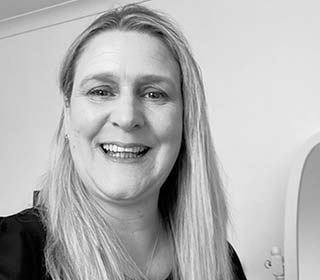
Sarah has worked with international, national and local sports persons from a variety of disciplines for over 20 years. She has worked within championship football, professional basketball, academy squads within professional rugby and football and professional ice hockey. She holds professional qualifications in manual therapy, acupuncture and she is a tutor for the RFU Intermediate Care in Sport qualification. She is also a member of the Sports Therapy Organisation (STO) Executive Committee, Complementary and Natural Health Care Council, Federation of Holistic therapists (FHT), British Association of Sport and Exercise Sciences (BASES) and The British Association of Sport Rehabilitators and Trainers (BASRaT).
Fees and funding
Fees UK students: £9,535 per annum
Fees for International students: £14,600 per annum
This fee covers your tuition and access to course-specific equipment and facilities, as well associated services including access to the library, study skills support, IT support, student support and wellbeing services and membership of the Student Union. There may be additional costs by course.
Additional costs:
Students are required to self-fund the following:
- A DBS check (£52)
- A first aid course (if you have not completed one)
- Marjon sports kit (£25-100)
- Printing costs
- Travel costs associated with placements and case studies
- Insurance for work placements (£35 per year)
Funding available for this course
Our Student Funding Advisors offer confidential and impartial advice about your funding options.
Learn moreLecturers
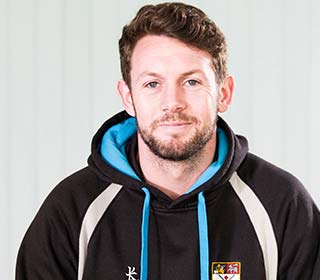
Ben, currently undertaking a PhD specializing in vertical jump force-time analysis; monitoring and enhancing performance. He is also a Sport Science Officer lecturing in applied biomechanics and strength & conditioning.
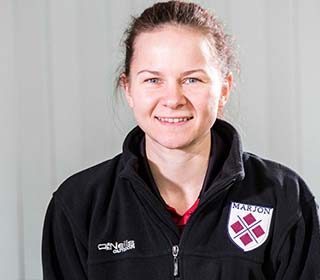
Vicki specialises in exercise rehabilitation and has worked with diverse groups including adolescents, sports people, disabled, fire service personnel and sarcoma patients. She currently leads the physical performance services for the FA Women's High Performance Centre.
Find out more about studying BSc (Hons) Sports Therapy at Marjon
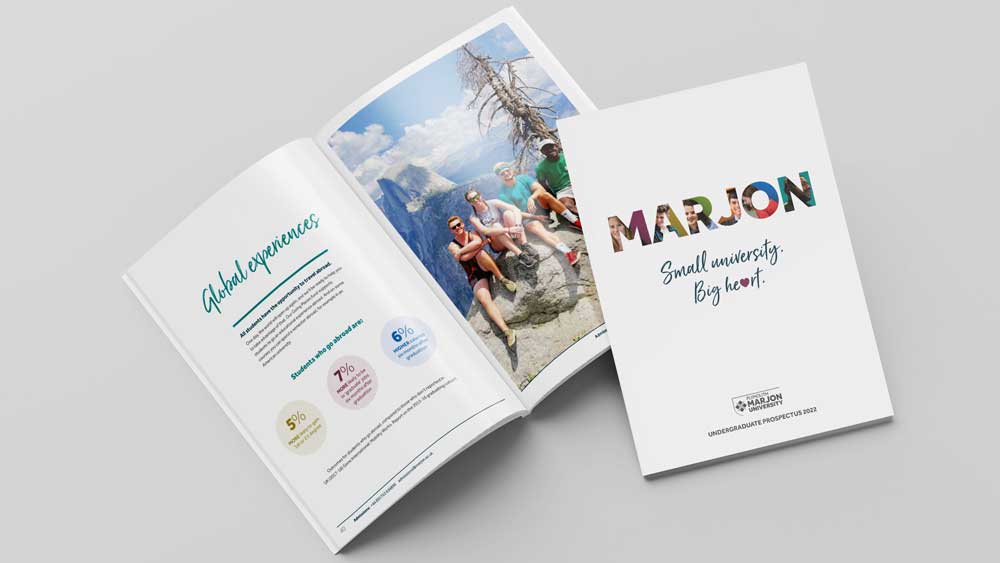
Discover Uni collects data about university courses in the UK. All universities publish Discover Uni data on their online course pages enabling you to compare similar courses at different universities.




